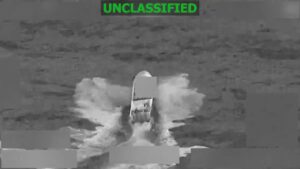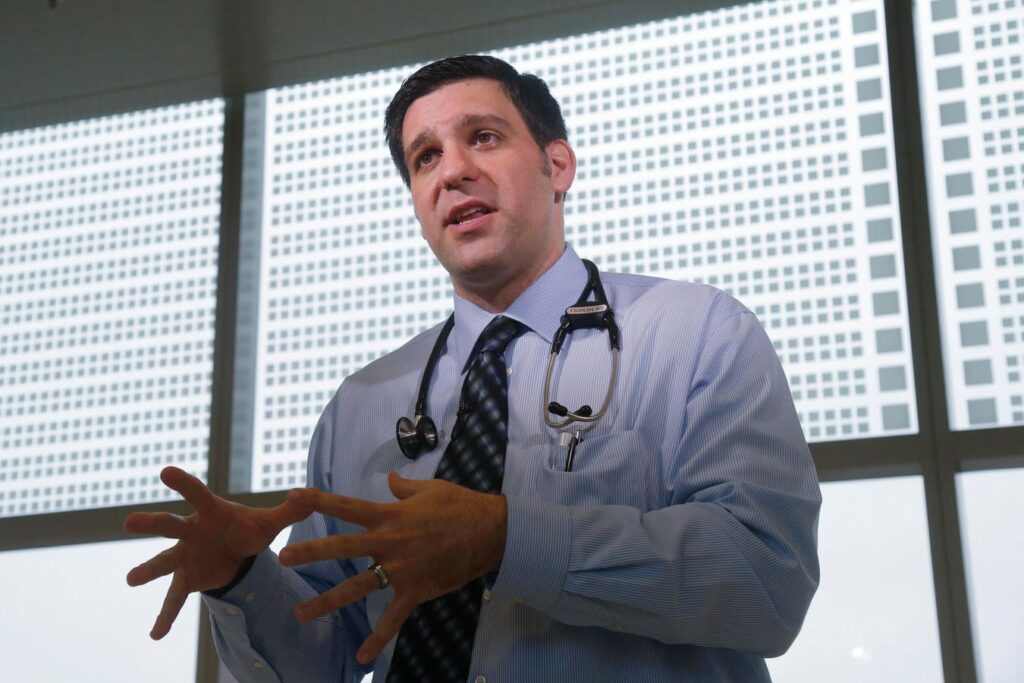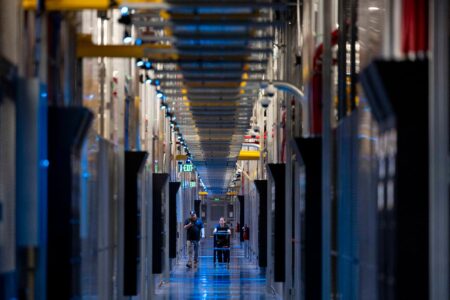A new memo by NIH Acting Director Matthew Memoli, obtained by Forbes, clarifies what can and can’t be done with regard to clinical trials, purchasing, research publications and public appearances.
When President Donald Trump last week ordered a “pause” on healthcare communications, the National Institutes of Health descended into chaos, with researchers both inside and outside the government agency unclear on what was permitted. Now, a Monday memo from the NIH’s acting director has provided some clarity amidst the uncertainty: The NIH, the crown jewel of American scientific research, would continue to perform its primary functions, including clinical trials and life-saving medical research.
In the two-page document, NIH Acting Director Matthew Memoli reiterated that the Department of Health and Human Services has “issued a pause” on communications and public appearances by agency staff. But the memo states that clinical trials at the NIH and its funded institutions are ongoing, labs can purchase “necessary supplies” for research that predates Trump’s inauguration and meetings regarding research from before that date may also continue.
The memo is unclear about what will happen to pending grants. New grant reviews, including hard-to-schedule study sections, had previously been halted. The document says only that “additional guidance” will be provided later this week.
The memo was first reported by STAT.
The NIH confirmed in an emailed statement received Tuesday that clinical studies are continuing, as are procurement, contracting, traveling and hiring for “anything directly related to human safety, human or animal healthcare, security, biosafety, biosecurity and IT security.” However, it stated that research labs could procure supplies and support only for ongoing research that predated Trump’s inauguration. “At this time, no new studies are being launched,” according to the statement.
In the aftermath of the NIH’s cancellations of meetings and grant reviews last week, researchers worried about their ability to continue to make scientific breakthroughs. And as Forbes reported last week, scientists feared that crucial medical research would be stalled. While Memoli’s missive has tempered those feelings a bit, NIH staffers remain frustrated and anxious.
“I think the intention of such a chaotic freezing of communications was to scare us, to demoralize us, and to set science back a bit in an effort to make us look bad,” one NIH staffer who has been at the agency for several years, told Forbes. “We are by no means perfect, but, ffs, our job is literally to enable research to save lives, what the heck?”
“There have never been politics in the NIH,” another source inside the NIH said, adding, “When politics is suddenly becoming involved that’s where the fear in large part is coming from.”
The temporary freeze on meetings is especially critical for cancer research, where the National Cancer Institute has a budget of $7 billion of the NIH’s total $47 billion. More broadly, NIH serves as both a financial kickstarter for research and a validator of essential scientific studies. Any slowdown could dampen advancement, according to Kazi Helal, a PitchBook analyst, particularly for biotech startups.
“The recent NIH grant suspension will likely lead to [a] decline in university spinouts within months,” he emailed Forbes, adding that the uncertainty could make venture capitalists hesitant to “fill [the] funding gap.”
A halt on purchasing supplies, first reported by CNN and confirmed by Forbes, raised concerns about what would happen to clinical trials at the NIH’s on-campus hospital, the Clinical Trial Center, if they ran out of test tubes or reagents.
Memoli’s memo clarified that ongoing clinical trials can continue and patients can travel for trials, but that “no procurements or contracting should be made for new studies, new equipment, or research services unrelated to the studies that were started prior to January 20, 2025.” He added that “meetings or communication regarding research that was already ongoing before January 20, 2025 may continue if it does not involve public release of information,” may also advance.
NIH researchers can continue to submit their papers and abstracts for studies that began before Trump’s inauguration, but cannot make that research widely available ahead of peer review, according to the memo.
Alex Knapp contributed reporting.
Note: This story was updated on January 28, 2025 a 11:55 a.m. to include the NIH’s response.
Read the full article here














